Implementing Resolution No. 57-NQ/TW on breakthroughs in science, technology, innovation and national digital transformation; Resolution No. 71-NQ/TW on breakthroughs in education and training development; Decision No. 127/QD-TTg approving the National Strategy on research, development and application of artificial intelligence to 2030; Circular No. 02/2025/TT-BGD&DT regulating the Digital Competency Framework for learners, the Ministry of Education and Training officially issued a plan and draft to solicit opinions on guidelines for pilot implementation of artificial intelligence (AI) education content in general education.
Designed according to 4 main knowledge streams, corresponding to 4 competency domains
In the new context, artificial intelligence education plays a crucial role in helping students develop their ability to receive, expand knowledge and be creative in the digital world. Artificial intelligence is a rapidly developing field of science and technology, deeply affecting all human activities, with breakthroughs, gradually becoming an essential tool to support lifelong learning and promote personal development.
AI education helps students adapt and integrate into modern society, form and develop AI capacity to apply in study and work, contributing to the development in the country's rising era.
The AI educational content framework for students is developed based on 4 circuits.
Key knowledge, corresponding to 4 competency domains, intertwined and complementary to each other, including: human-centered thinking, AI ethics, AI techniques and applications, AI system design.
Designing an AI education content framework according to the main knowledge streams, in addition to knowledge about AI, also helps students clearly understand the boundary between using technology and social responsibility, ensuring that AI serves human life safely and humanely.
Educational content by grade level
The content framework is designed to correspond to two educational stages: Basic education stage (including primary and secondary school levels) and career orientation education stage (high school level). The content framework is designed consistently but clearly differentiated according to age psychology.
Primary level (Introduction): students recognize AI through visual applications (image and voice recognition), understand that AI is created by humans and initially form awareness of protecting personal data.
Secondary School (Basic Knowledge): Understand the operating principles (data, algorithms), practice using AI tools to solve learning problems and identify risks and biases of AI.
High School Level (Creation and Career Orientation): Students design simple AI systems, develop complex problem-solving thinking, and orient themselves toward careers in technology.

Flexible deployment form, no overload
According to the draft guidelines, the Ministry of Education and Training requires that the organization and implementation of AI education content in general education must ensure consistency in guidance nationwide, while promoting proactiveness, flexibility, and suitability to the conditions of localities and educational institutions in the organization and implementation.
The implementation does not change or overload the General Education Program. It is necessary to compare with the requirements of each subject and educational activity in the General Education Program to deploy the content in the AI Content Framework suitable for each subject. AI educational content and activities must be designed to suit the age psychology, needs and technology accessibility of students at each level and class.
Promote the school's initiative in selecting and combining many forms of implementation (integrating into subjects, organizing seminars, learning through projects, clubs, etc.) suitable to practical conditions.
At the same time, the Ministry of Education and Training requires localities to maximize available resources and facilities, avoiding scattered and ineffective investments. Encourage cooperation and socialization to mobilize resources to support expertise, learning materials and practical experiences. Have appropriate solutions so that all students, especially those in areas with difficult socio -economic conditions, have the opportunity to access AI education.
The proposed implementation roadmap ensures feasibility and effectiveness.
The Ministry of Education and Training builds a methodical roadmap to ensure feasibility and effectiveness.
June - September 2025: Research theoretical and practical foundations; develop a draft AI Education Content Framework with the participation of experts and consultation with international experts and organizations.
October - November 2025: Establish an Evaluation Council; organize workshops to seek opinions from Departments of Education and Training, experts, scientists, educational institutions and relevant organizations and individuals.
November: Draft Official Dispatch guiding the pilot implementation of AI education content for high school students, widely soliciting opinions from Departments of Education and Training.
December 2025: develop documents, train core team to implement the pilot.
December 2025 - May 2026: pilot implementation at a number of selected educational institutions and regular evaluation.
June 2026: summarize and evaluate pilot results, complete the AI Content Framework to propose widespread deployment in the following school years.
In parallel with student education, the Ministry also piloted the application of AI in management, supporting teachers in preparing lessons and innovating assessment methods.
Source: https://giaoducthoidai.vn/bo-gddt-du-thao-huong-dan-thi-diem-noi-dung-giao-duc-tri-tue-nhan-tao-post757898.html

























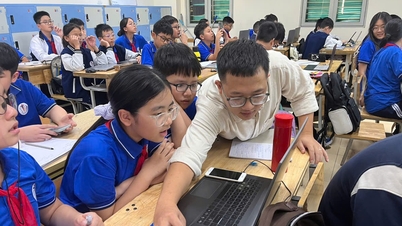














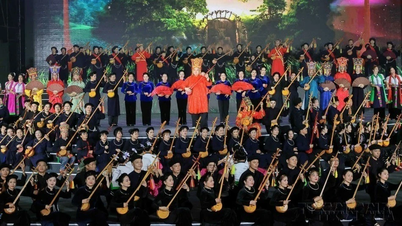



















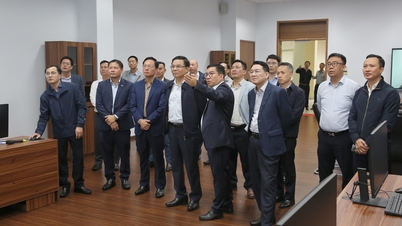





















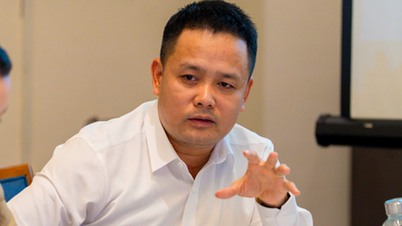








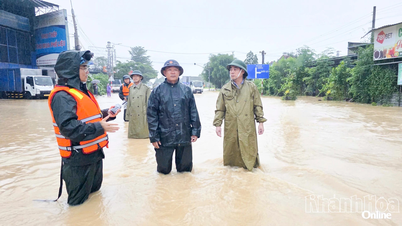















Comment (0)